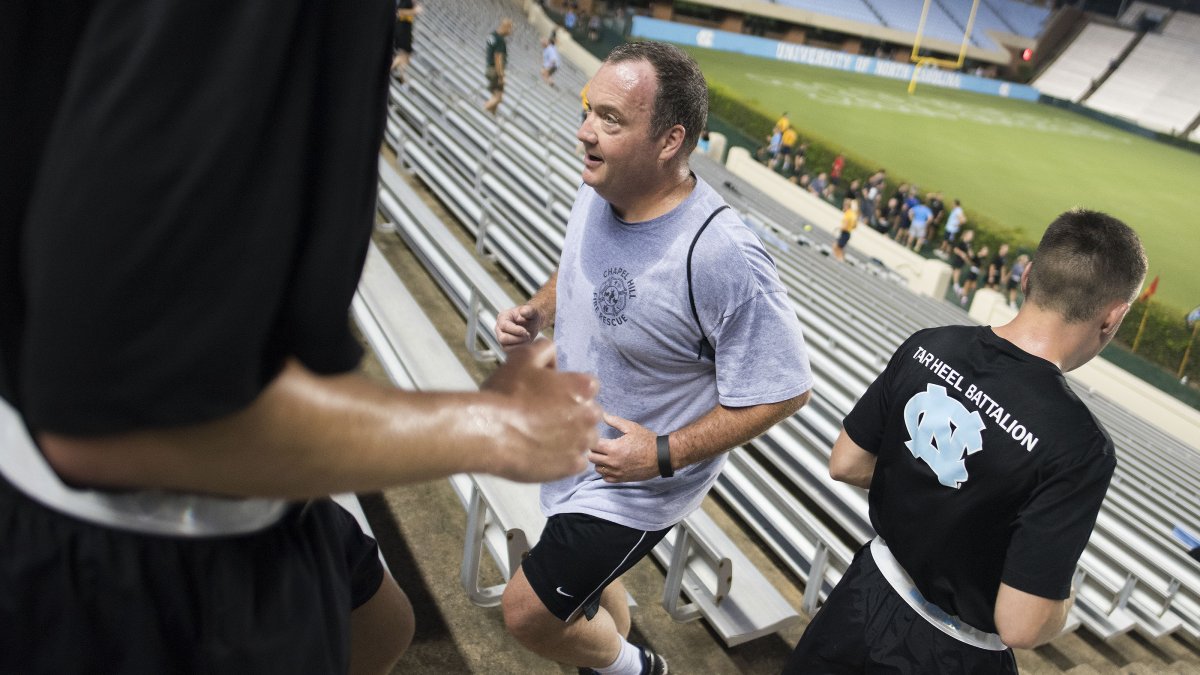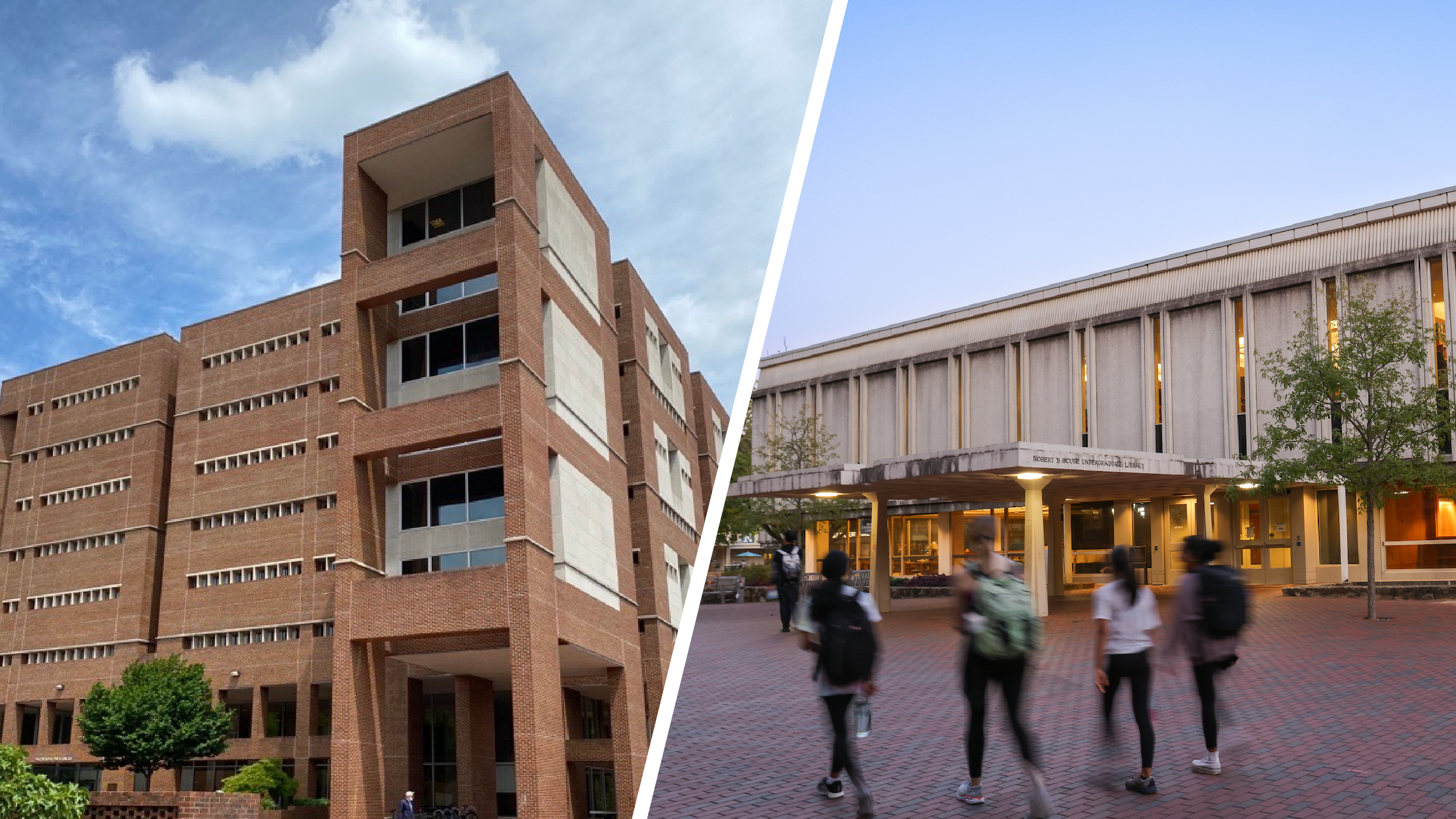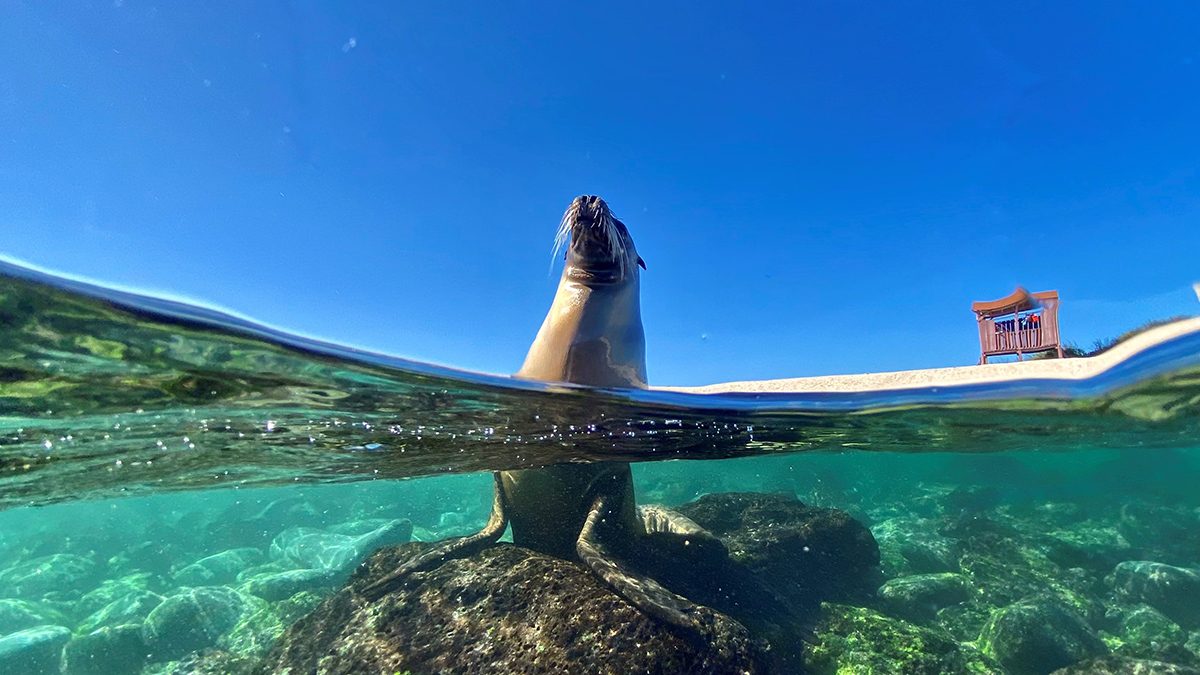‘A poignant reminder’
The Chapel Hill police chief and fire chief joined Chancellor Carol L. Folt and more than 150 participants from the Carolina community at the annual Stairs to Remember run, honoring the sacrifices made and risks taken by the first responders on 9/11.

With each stair they climbed inside Kenan Stadium on Friday morning, Chapel Hill Police Chief Chris Blue and Fire Chief Matt Sullivan reflected on every first responder who didn’t go home after their shift on Sept. 11, 2001.
Blue and Sullivan joined Chancellor Carol L. Folt and more than 150 participants from the Carolina community at the annual Stairs to Remember run. The event honors the sacrifices made and risks taken by the first responders who rushed into the World Trade Center to try to rescue victims trapped in the buildings 15 years ago.
“It’s really important for responders to come together, spend time together and remember those who have done work before us and who aren’t here,” Blue said.
Hosted by the University of North Carolina at Chapel Hill’s Army ROTC, the annual stair run was a 110-flight climb through Kenan Stadium held just before daybreak. The run pays homage to the victims of the terrorist attack and the first responders by running 2,076 steps — the same number of steps that were in each of the World Trade Center Towers.
“We’ve come to honor those who passed, to honor those who serve and to help remember and teach those who follow about the importance of the caring and the service that all of you and so many others give in service to our country,” Folt told the runners before she joined them in climbing the stairs.
For local firefighters and police officers, the event was also a reminder of the daily commitment to serve the community and the risk that comes along with it.
“It’s a really poignant reminder of the sacrifice that people make — made and continue to make,” Sullivan said. “There are people that work in their communities that are prepared to make the ultimate sacrifice for the community’s well being.”
It’s a commitment and sacrifice Sullivan and Blue — both Carolina graduates — have faced for decades.
A community steward
Sullivan never planned on becoming a police officer, or even a fire chief in his hometown. After graduating from Carolina with a political science degree in 1989, he figured he would spend two years as a public safety officer with the Town of Chapel Hill, and then he’d move on.
Almost three decades later, he’s still there. Other than a brief stint working as the University’s substance abuse programs coordinator, Sullivan has served the town ever since he graduated.
His job titles, though, have varied over the years. From narcotics investigator and firefighter to a police social worker and emergency management coordinator, Sullivan has aimed to fill the needs of the community — even when that meant returning to Carolina for a social work degree and then NC Central for a law degree.
“This community deserves the best that we have to offer,” Sullivan said. “This is a special place. There are hundreds of special places around the United States, but this is my special place.”
Chapel Hill isn’t the only place to have benefited from Sullivan’s tireless efforts to serve, though.
For several weeks following the 9/11 attacks, Sullivan — along with five other police officers and one firefighter from North Carolina — worked with first responders who were picking up the pieces in New York City. Conducting check-ins and providing critical incident debriefings, the team focused on the mental health of the responders as they tried to make sense of the events while sorting through the rubble.
“It was tough,” Sullivan said. “It was a life-changing experience for me. There was a lot of hurt, a lot of pain, a lot of evil. I’ve seen evil in my work, and it was there.
“But in the midst of this terrible event, there was all sorts of compassion, outreach, solidarity, support and love. It was amazing. On one hand, you’re seeing the worst humankind can do, and on the other, it’s amazing how people raise up.”
Those memories, he said, are what he focused on as he climbed the 110-flights of Kenan Stadium, and knowing that he leads a department of firefighters — or “community stewards,” as he calls them — who would willingly face the same challenges he saw in New York.
“There are folks here prepared to make the ultimate sacrifice in 10 seconds,” he said. “We don’t think about that sometimes. When we see a fire truck rolling down the street, we think it’s another wreck, but they really walk in the here and they sign up to do this. What we do in our community and for our community is significant.”
‘Unchartered territory’
Only four years into his law enforcement career, Blue was on his way to work at a police community services outpost at University Place when the first plane hit the World Trade Center.
Not knowing what was happening, he stopped by the mall’s Radio Shack to watch the news. That’s when the second plane hit.
“It was complete shock,” he said. “There wasn’t a script for how to respond. It was unchartered territory.”
The marching orders that day, Blue said, were to be visible in the community — remind the community they were safe. The exact reason he wanted to be a police officer in the first place.
After graduating from Carolina in 1990 with a broadcasting degree, he bounced around from a few jobs, unsure of what he wanted to do — until a closing shift at a restaurant when he watched “Cops” with a fellow waiter.
“We were sitting there, and one of us looked at the other and said ‘We could do that,’” he said. “The next day, we applied. I knew I wanted something that I would be proud of. I wanted to contribute to our community. “
A few years later, Blue was a police officer, serving a number of roles including bike patrol, tactical teams, community outreach and narcotics. Throughout his career, it’s been the ability to make a difference in Chapel Hill that drives him.
“There are very few jobs where you can go home at the end of your 12-hour shift and look yourself in the mirror and say ‘I helped somebody today,”’ he said. “You can do that every single day here.”
Blue is confident that that passion held by his officers is the same one that first responders in New York City brought to their shift that day 15 years ago, and the reason they risked their lives to save others.
“The people who lost their lives on 9/11 got up that morning for their shifts thinking they were going to make a difference, and many of them did not go home at the end of the day,” Blue said.
As he and others ran 2,076 steps at Kenan Stadium on Friday, they remembered.
For sights and sounds from the Stairs to Remember Run, please visit: https://youtu.be/_4KtcovqEXo




